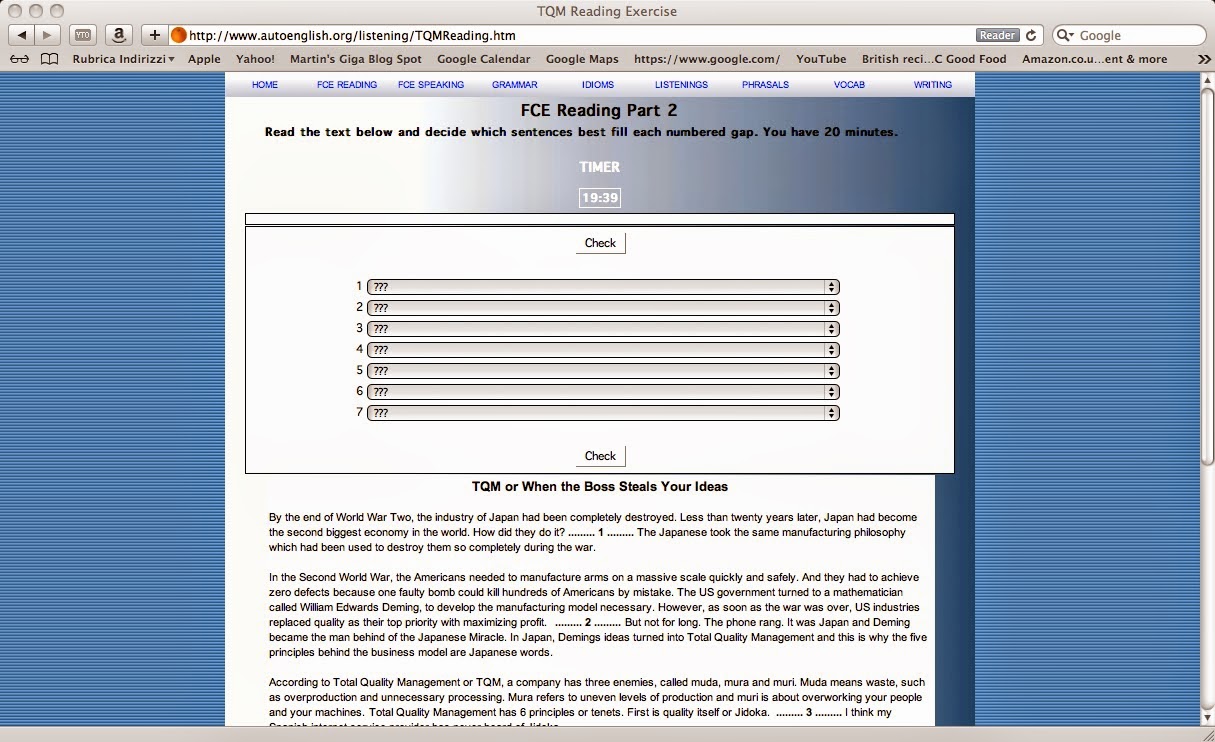First Reading Part 2 (removed sentences)
Go to the link below and complete the Auto English online FCE Reading Part 2 exercise.
You must not take more than 20 minutes to complete the exercise
http://www.autoenglish.org/listening/TQMReading.htm
Modals – deduction (present)
We use modal verbs to say how sure we are about something.
1 must
We use must when we feel sure that something is true because there’s very strong evidence.
1 must
We use must when we feel sure that something is true because there’s very strong evidence.
- He must live near here because he comes to work on foot. We don’t know where he lives but we’re sure it’s not far away.
- Come inside and get warm – you must be freezing out there.
- You’re a zookeeper? That must be very interesting.
Notice that must is followed by an infinitive without ‘to’.
2 might, may, could
We use might, may or could to say that we think something is possible but we’re not sure.
2 might, may, could
We use might, may or could to say that we think something is possible but we’re not sure.
- Did you hear that? I think there might be a burglar downstairs. She’s not sure there’s a burglar but she thinks it’s possible.
- We’ll try to get there early but we may arrive late if there’s a lot of traffic.
- Don’t put it up there. It could fall off and hit someone.
Might, may and could are also followed by an infinitive without ‘to’.
3 can’t
We use can’t when we feel sure something is not true.
3 can’t
We use can’t when we feel sure something is not true.
- It can’t be a burglar. All the doors and windows are locked. He doesn’t know it’s not a burglar but he feels sure it’s not.
- It can’t be far away now. We’ve been driving for hours. Where’s the map?
- Really? He has to work on Christmas Day? He can’t feel very happy about that.
Like the other verbs, can’t is followed by an infinitive without ‘to’.
Remember that all of these modal verbs – must, might, may, could and can’t have other uses. These are covered in another section.
Remember that all of these modal verbs – must, might, may, could and can’t have other uses. These are covered in another section.

.tiff)
.tiff)








